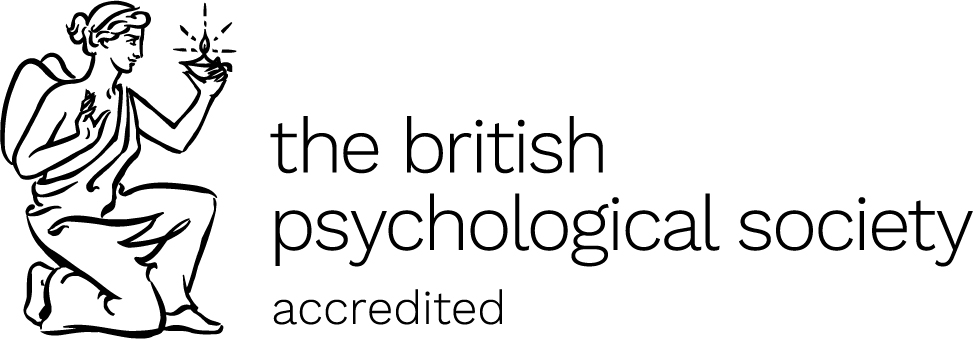Study options
- Starting in
- September 2025
- Location
- Mile End
- Fees
- Home: £12,850
Overseas: £29,950
EU/EEA/Swiss students
What you'll study
This multifaceted programme will help you take your first step towards a career as a psychologist. In the first semester you will cover a range of key areas including cognitive psychology, social psychology, and research methods, as well as mental health.
In the second semester you will cover psychology in more depth, focussing on further research methods (including quantitative methods), developmental psychology, individual differences, and biological psychology.
Through these taught modules you will build up a strong knowledge base to build a research project, which you will undertake in your final semester.
Structure
- Eight compulsory taught modules
- One research project
Compulsory/Core modules
This module allows you to conceive, design and carry out a substantive, original empirical study in an area of psychology independently. You work on approved research topics set by project supervisors. Experimental or theoretical work is the principal component of the project. The work also involves critical evaluation of data previously published in the literature. A consideration of ethical issues is also required. A dissertation is prepared. This module will teach you to work on original scientific research topics and consolidate quantitative research skills, communication and critical evaluation. It will enhance your understanding of psychology in a broader context and will provide you with experience of working in a research environment. Research project topics are varied to reflect the breadth of psychological and biologically motivated psychological research in the Department, ranging from how parental attachment styles affect students learning to how mice learn to navigate new environments.
To provide psychology MSc conversion students with a scientific overview of the brain and its function emphasizing concepts relevant to behaviour and its study. This compulsory module supports psychology as a natural and experimental science and introduces you to the notion of psychology as a branch of the biological sciences (e.g., that behaviour is the end product of whole organism biology), a core aspect of accredited undergraduate degrees. It will also introduce you to principles of neuroscience and the integrative scientific thinking skills required to study subsequent psychological topics. You will be introduced to empirical findings and will critically evaluate the range of methods in the field. The topics covered include basic cell biology, principles of communication, regulation of gene expression, protein synthesis, and human neuroanatomy. The involvement of these and other cell biological processes in the control of behaviour will be illustrated.
This module considers the cognitive functions and properties of the human mind. The material covered include the history of cognitive psychology, visual and multimodal perception, attentional processes, memory mechanisms, language and knowledge representation, problem-solving and expertise, and decision making and reasoning. The relationships and links between processes will be covered, as well as the implications of cognitive psychology research in the real life and other scientific fields (e.g., the dialogue between all cognitive sciences including linguistics and computer science will be embedded across the module; critical discussions about the impact of research in memory on eyewitness testimony will be prompted). Theoretical approaches, experimental paradigms and empirical studies in cognitive psychology will be discussed throughout.
This module surveys developmental psychology, covering human development across the whole life span but with a more detailed focus on development in the early years (infancy/childhood). The aim of the module is to introduce the key questions, theories, concepts, methodology, studies and research findings within developmental psychology, regarding different domains of psychological functioning including social, emotional, cognitive, cultural and behavioural development. The module will also cover the prenatal period, physical, motor, and sensory development, learning theory, moral development, and development of the self (identity). Where appropriate we will focus on the roles of culture and/or geography in development as well as considering novel stressors that can affect associated processes (e.g., war, displacement).
This module provides an in-depth analysis of a central area of psychology known variously as 'individual differences' or 'differential psychology'. We will build on several key areas of psychology that show substantial individual differences including personality, psychopathology, intelligence, and cognition. We will then explore the proposed causes and effects of these individual differences drawing from research using approaches from psycho-dynamics to behavioral genetics. Finally, we will explore the evidence behind several key controversies in individual differences including the continuum between personality and mental heath, the nature vs nurture debate, race differences in intelligence and genetic determinism.
Have you ever wondered what influences our perceptions, emotions, thoughts, and behaviours? This module in Social Psychology will allow you to engage with the classic and contemporary scientific theories and methods used to address how other people and different contexts can shape these processes. Topics covered will include the self, social cognition, attitudes and attitude change, social influence, group processes, and stereotyping, prejudice and discrimination.
This module introduces fundamental skills in experimental design, statistical analysis and other methodologies necessary for conducting research in psychology. You will learn understand and critically appraise the different research methods commonly using in psychology research, with a particular focus on qualitative methods, and understand issues critical to experimental design such as sampling, validity, and reliability. The course will combine lectures and practical sessions covering computerised statistical analysis using a relevant statistical software package.
This module builds on Research Methods and Statistics in Psychology Part I in Semester A and introduces advanced statistics necessary for independently conducting psychological research at the level for the research project. It also introduces additional methods psychologists use in research. The course will combine lectures and practical sessions covering computerised statistical analyses using a relevant statistical software package.
This module explores key topics in mental health, from both historical and contemporary contexts, including in-depth analyses of current issues in the field. Key themes may include the role of mental health services, the importance of evidence-based practice and evidence-based psychological treatments. This module encourages you to view and reflect on mental health through different lenses and to consider the point the view of practitioners, scientists, and clients. It aims to advance critical reasoning skills through the analysis of empirical research, debates in the literature, and the discussion of the broader contexts of the mental health sciences.
Assessment
- 80% Modules
- 20% Dissertation
The programme will be assessed through a varied combination of essays, exams, practical assignments, group projects, workshops, presentations and a dissertation.
Dissertation
You will conduct an in-depth research project focusing on a specific research question that you will discuss with your supervisor.
Teaching
This course has been developed and is taught by experts in their fields. You'll attend a series of lecturers, computer labs, tutorials and workshops. There will be a mixture of both individual and group-based exercises and discussions.
You will also be expected to complete further hours of independent study by reading designated material, producing written assignments and completing projects. To help you along your journey, you'll also be assigned an Academic Advisor who will guide and support you throughout the course.
Student are also strongly encouraged to attend the School Psychology Seminar series.
Where you'll learn
Facilities
- An Electroencephalography (EEG) Lab, a purpose-built facility designed for the use of researchers exploring cortical brain potentials and cognition.
- The Behavioural Lab, where computer-based experiments can be run using various psychological software tools (e.g E-Prime 2.0, Psychtoolbox for Matlab).
- Newly refurbished lecture theatres
- Full access to our online resources
- Extensive Library and IT facilities, including a subject librarian
- Mentors for non-programme related support, including careers advice
- Brand new Graduate Centre, offering purpose-built study spaces and an exclusive rooftop common room
- Access to the University of London's central facilities- including the iconic Senate House library in Bloomsbury, which contains over 2 million books
Campus
You will be studying at the School of Biological and Behavioural Sciences (SBBS) on the Mile End Campus, East London. The central location offers easy transport links to all areas of the capital and you have the opportunity to take advantage of all the capital has to offer, including access to our partner libraries across the city. You will benefit from the wealth of world-leading psychology research and lectures taking place in London, including the following:
- Queen Mary Psychology Seminar Series
- UCL Departmental Lecture series for Clinical, Educational & Health Psychology
- Kings College London Institute of Psychiatry, Psychology & Neuroscience
- Goldsmiths Department of Psychology
-Large.jpg)
About the School
School of Biological and Behavioural Sciences
The School of Biological and Behavioural Sciences is one of the UK’s leading research departments, with a multi-disciplinary approach to teaching and research. We are a large and dynamic school with strong links with industry, offering students a stimulating and supportive learning experience.
Queen Mary University is also part of the Russell Group - a body of leading UK universities dedicated to research and teaching excellence.
We also collaborate with the School of Geography on the Centre for the Aquatic Terrestrial Environment (CATE). The facilities of which, some students can access for specific projects or modules.
Career paths
Through the degree, you will develop excellent communication, data analysis, critical thinking, creative and interpersonal skills.
Graduates of this programme will be well placed to pursue careers in a variety of fields including:
- Health Management
- Policing
- Education
- Clinical Psychology
- Forensic Psychology
- Organisational Psychology
- 100% of our postgraduate taught students are in employment or further study 15 months after graduating (HESA GOS, 2020/21)
- 87% of those in work are in highly skilled employment. (HESA GOS, 2020/21)
- £27,395 The average UK salary 15 months after graduating for our postgraduates (HESA GOS, 2020/21)
Fees and funding
Full-time study
September 2025 | 1 year
- Home: £12,850
- Overseas: £29,950
EU/EEA/Swiss students
Conditional deposit
Home: Not applicable
Overseas: £2000
Information about deposits
Queen Mary alumni can get a £1000, 10% or 20% discount on their fees depending on the programme of study. Find out more about the Alumni Loyalty Award
Funding
There are a number of ways you can fund your postgraduate degree.
- Scholarships and bursaries
- Postgraduate loans (UK students)
- Country-specific scholarships for international students
Our Advice and Counselling service offers specialist support on financial issues, which you can access as soon as you apply for a place at Queen Mary. Before you apply, you can access our funding guides and advice on managing your money:
Entry requirements
UK
Degree requirements
A 2:1 or above at undergraduate level in any subject. Those with previous study in Psychology that may overlap with the Masters will be considered on an individual basis.
All students must demonstrate sufficient previous study of Maths either from their degree or at a level we deem equivalent to at least a grade C/4 at GCSE, demonstrable with formal qualifications or professional experience – this could be from High School
Find out more about how to apply for our postgraduate taught courses.
International
English language requirements
The English language requirements for our programmes are normally indicated by an English band assigned to the academic department within which your chosen course of study is administered. However, this course does not follow the School of Biological and Behavioural Sciences standard English language requirements for entry to postgraduate taught and research programmes.
For the English language requirements for this course, see programmes with non-standard English language requirements in this School.
Visas and immigration
Find out how to apply for a student visa.






